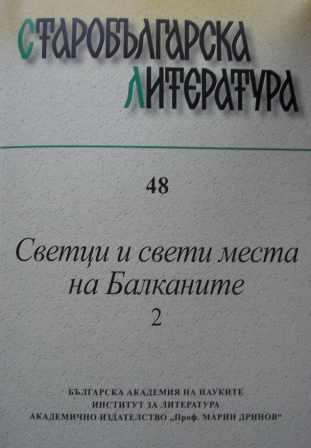„Побългаряване“ на светците
“Bulgarisation” of Saints
Author(s): Ivanka GergovaSubject(s): History
Published by: Институт за литература - БАН
Summary/Abstract: As a rule, the ethnic origins of the saints do not influence the establishment, dissemination, and popularity of their cults. Yet, there are some historical circumstances in which the ethnicity of the saints is underlined. The cases of “Bulgarisation” of saints reveal alteration of the emphases of their cults. The claims from the Second Bulgarian Kingdom that the father of St. Demetrius of Thessaloniki was Bulgarian and that Constantine-Cyril and Methodius were of Bulgarian origin represented two early cases of this kind. Both claims seem to have been due to ideological motifs although they are likely to have occurred in different social strata. During the Ottoman period, new attitudes toward saints had been developed. Since in that period the ethnicity was identified with the religious denomination, the origin of the saints was not that important for different ethnic environments. Quite different are the ideas of the Bulgarian National Revival at the beginning of which, in 1862, Paisij of Hilandar emphasized the Bulgarian national ideals. Part of his national (and political) program is the chapter in his Istorija slavenobolgarskaja dedicated to the saints of Bulgarian origin. In his list of Bulgarian saints, there are both saints of Bulgarian origin and saints to whom Bulgarian origin was additionally attributed. In the middle of the 19th century, particularly in the Bulgarian calendars with special sections on the Bulgarian saints, the number of saints with “Bulgarian origin” increased. Such saints and their imaged appeared also in other sources of that period. This tendency is a reflection of the struggle of the Bulgarian Church for independence.
Journal: Старобългарска литература
- Issue Year: 2013
- Issue No: 48
- Page Range: 247-257
- Page Count: 11
- Language: Bulgarian

